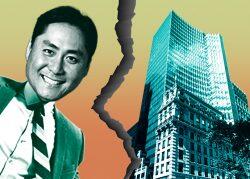Like a kid with a new pair of school shoes, real estate traditionally observes the end-of-summer vibe shift with big office listings that set the tone for the rest of the year.
This September, however, investors have largely avoided putting their trophy properties up for sale, an acknowledgment of the difficulties in the investment sales market brought on by rising interest rates and an economic slowdown.
“If I owned an office building right now I’d be hesitant to bring it to market, because there’s still so much uncertainty around what happens next,” said MSCI Real Estate’s Jim Costello.
Read more


The back half of the year usually generates an outsized share of investment sales, particularly in the fourth quarter as sellers look to get deals done by year’s end for tax purposes. But most investors avoid bringing big properties to market in late summer, when much of the industry is on vacation. The first few weeks of September tend to see several trophy assets put up for sale.
But more than a week after Labor Day, no large offices have hit the market in New York, and sources in the investment sales market told The Real Deal that they don’t see any lined up for the near future. They point to a tough market for buyers and sellers alike, with uncertainty about whether or not workers will return to offices in large numbers and an economic recession looming.
On top of that, rising interest rates have made it more difficult to finance acquisitions — and that’s if you can find someone willing to offer a loan at all.
“A number of lenders have drawn a line in the sand and said they won’t lend on any office,” said one of the city’s top commercial brokers.
At least one trophy office property may soon come up for sale: 245 Park Avenue, which SL Green Realty said this week it had acquired out of bankruptcy. During a presentation with Bank of America on Tuesday, SL Green executives said they plan to bring the 1.8 million-square-foot building to market “immediately” by offering a stake to a joint venture partner, though the precise timing wasn’t clear.
Offices generally make up the bulk of Manhattan investment sales, but this year they’ve taken a back seat to hot multifamily assets.
Offices made up about 31 percent of the borough’s investment sales in the second quarter, compared to multifamily’s 58 percent, according to CBRE. That was basically an inversion of the split seen over the past year.
This year got off to a good start, with major deals like Blackstone’s purchase of a 49 percent stake in One Manhattan West in March, valuing the Midtown tower at $2.8 billion, and Google’s $2.1 billion acquisition of the St. John’s Terminal at 550 Washington Street, which closed in April.
But as the months went by, the market started to struggle. Property & Building Corp.’s deal to sell the HSBC Tower at 452 Fifth Avenue for $855 million fell apart when buyer Andrew Chung’s Innovo Group failed to secure financing. And Steven Roth’s Vornado Realty Trust recently reached a deal to sell 40 Fulton Street to David Werner for around $110 million — about a 20 percent discount to what it sought when it placed the Financial District property on the market in May.
Still, Manhattan office sales totaled $3.88 billion in the first half of the year, according to Ariel Property Advisors, quadrupling last year’s lethargic start. But commercial real estate saw a surge of investment at the end of 2021, setting a high bar for the second half of this year to match.
“We can see activity levels more broadly being down 25 to 30 percent depending on how things shake out over the next few months,” said JP Morgan commercial real estate analyst Anthony Paolone.
As for now, the choppy investment sales market has disrupted the normal ebb and flow of real estate’s fall selling season.
“There’s a seasonal pattern there,” MSCI’s Costello said. “If you want to get something sold, you’ve got to get it listed.”
